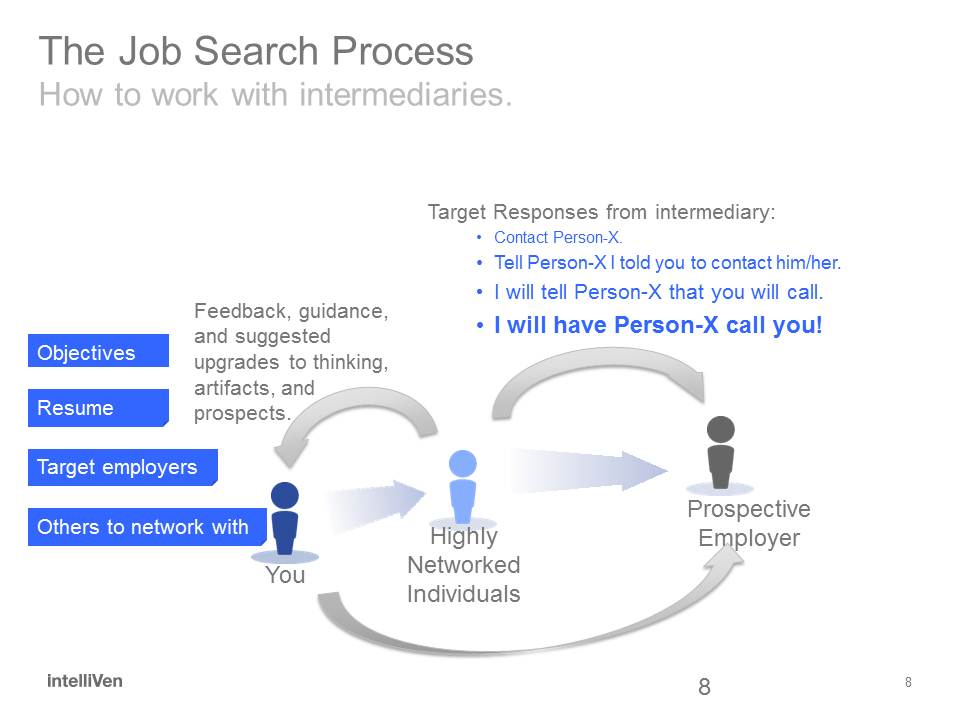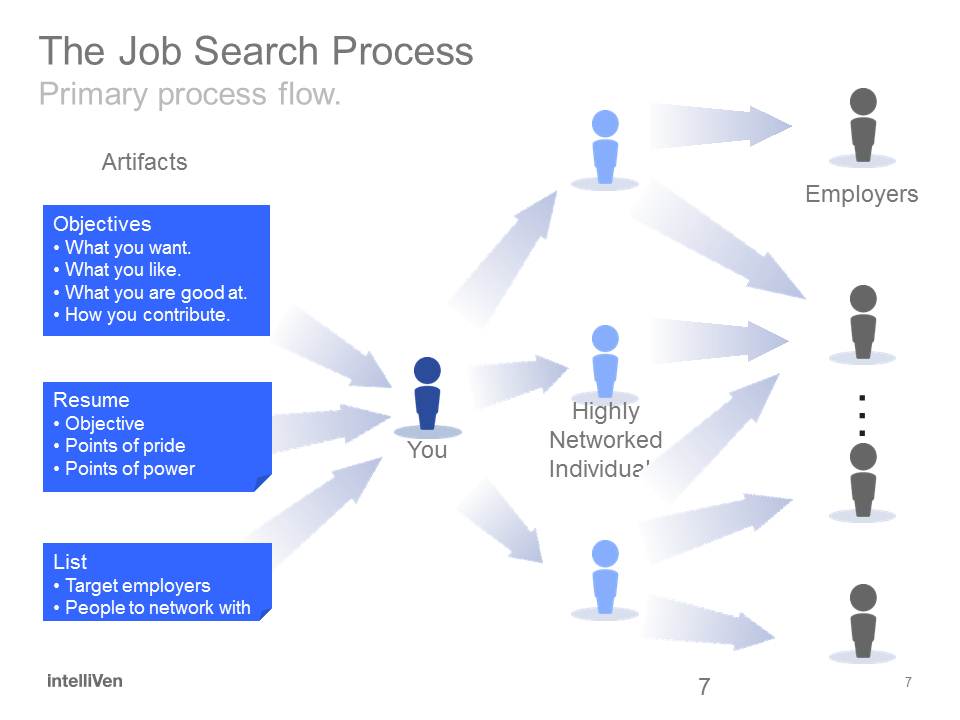It is a job to find a job … and most of those who are Open-to-Work do not do it well; in part because there is little time to find a new job while employed and, when unemployed, a sense of despondence, depression, or desperation may make it hard to perform at peak levels.
Three iterative steps can turn the average job seeker into their own search executive in charge of a stress-free campaign that is guaranteed to find a job and to grow as a professional from the experience.
STEP I: Get clear about what you want to do next.
Most do not get clear about what they want to do next because it is hard to do and because they do not want to rule anything out. Perhaps they hope to be pleasantly surprised by the jobs that others will just happen to offer them if they remain open.
Unfortunately, things do not usually work this way, except by sheer luck, especially for those well into their career. Asking a prospective employer to study a resume and propose a job is like a chef handing a restaurant patron a list of ingredients and asking what they would like to eat. It is too hard to do and the more experience and skills there are to look at, the worse the problem.
The odds of getting the job you want increase dramatically when you are clear about what you want. The preferred approach is to describe the ideal job in order to force a prospective employer to think about you in the context of something specific. This brings to mind corresponding openings if they exist and, if not, jobs that are near to it are likely to surface, first in the reader’s mind and then in conversation.
Job seekers need to get to the point where they can:
-
- Describe their ideal job in a single written paragraph or in a few bullets.
- Orally describe their ideal job in 30 seconds or less.
STEP II: List ideal employers.
Do some research to come up with a list of named organizations at which it would be great to have your ideal next job. Select organizations that are thriving in an industry and in a geography of great interest. There is no point chasing jobs only to reject them in the end because they are not in an area of keen interest or in the right location.
It is best to be in the location in which you want to work. If the target location is not where you currently reside, arrange for an extended stay in your target location in order to immerse yourself in the area and not be dashing in and out.
Step III: List highly networked people you can connect with.
Compile a list of people who may be able to refer you to leaders in any of your target organizations. Ideal referrers are themselves successful and highly networked. Such people almost always have time to help someone make a productive connection.
Start connecting with those on your list by spending about an hour with a person you already know who might be a good referrer, perhaps over lunch, and follow this script:
-
- Tell them about yourself and what you ideally want to do. Tell them directly that you seek their best advice and unvarnished counsel.
-
- Show them your list of people you have targeted to network with. Let them offer to help connect you to those they know and to add to the list others that you hadn’t thought of.
-
- Show them the list of organizations at which you might like to work. Let them react. By this point they should be tuned-in to you and to what you seek. This is the moment in which their best advice will flow. Listen carefully and draw them out fully. Do not refute or otherwise disrupt their flow. Record what is said word for word. At some point they are likely to lift up from looking at your list and say something like: “You know who you ought to speak with ….”. The best possible outcome is for them to get someone with a need to call you to discuss what you want to talk them about, so urge them to have those who come to their mind contact you; or at least to let them know that you have been encouraged to make contact.
Refine the definition of your ideal job, list of referrers, and target organizations based on input received and iterate through the three steps. Keep a running, prioritized list of the top prospective jobs. Focus on the top few prospects until an offer is received or until another opportunity emerges that belongs in the top-three.
When your receive an offer, use it as leverage to push other prospects to finally make offers as well. Your choice is then to either accept one of the offers (before you do, read these tips!) or start the process over again!

Note that in addition to helping to find a job, this approach also:
-
- Develops networking skills.
- Increases the extent to which you are networked.
- Provides access to information that will be useful later.
- Is fun, interesting and edifying.
- Teaches how to sell … in this case you sell yourself but the steps work no matter what you have to sell.
The button below is to the above content presented in a Powerpoint slide deck.







